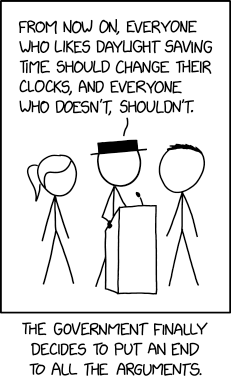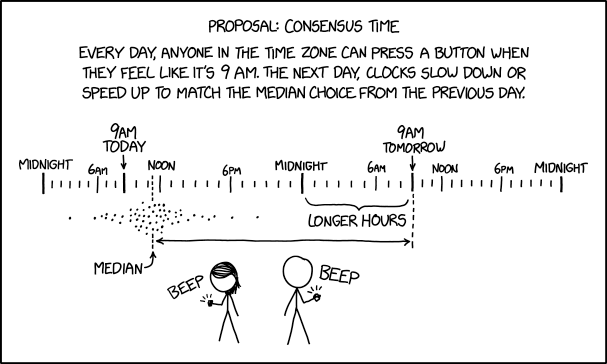As you may have read over the weekend, Elon Musk found a company that agreed to take the social platform formerly known as Twitter off of his hands. Perhaps not coincidentally, the buyer happened to be another company controlled by Musk.
From CNN:
Elon Musk on Friday evening announced he has sold his social media company, X, to xAI, his artificial intelligence company. xAI will pay $45 billion for X, slightly more than Musk paid for it in 2022, but the new deal includes $12 billion of debt.
Musk wrote on his X account that the deal gives X a valuation of $33 billion.
“xAI and X’s futures are intertwined,” Musk said in a post on X. “Today, we officially take the step to combine the data, models, compute, distribution and talent. This combination will unlock immense potential by blending xAI’s advanced AI capability and expertise with X’s massive reach.”
Musk didn’t announce any immediate changes to X, although xAI’s Grok chatbot is already integrated into the social media platform. Musk said that the combined platform will “deliver smarter, more meaningful experiences.” He said the value of the combined company was $80 billion.
Musk has made a slew of changes to the platform once known as Twitter since he purchased it in 2022, prompting some major advertisers to flee. He laid off 80% of the company’s staff, upended the platform’s verification system and reinstated suspended accounts of White supremacists within months of the acquisition.
While X’s valuation is lower than what Musk paid for the social outlet, it’s still a reversal of fortunes for the company. Investment firm Fidelity estimated in October that X was worth nearly 80% less than when Musk bought it. By December, X had recovered somewhat but was still worth only around 30% of what Musk paid, according to Fidelity, whose Blue Chip fund holds a stake in X.
Since both of these are privately held businesses, the details are even murkier than usual, but Patrick Boyle does a good job of cutting to the chase.
While the news reports that Twitter is back above the $44 billion price that Elon Musk paid for it in 2022, many investors are highly skeptical about this valuation, as user numbers and advertising revenues have declined significantly since 2022. The transaction that values the business at $45 billion was X AI, another Elon Musk company, buying it. A person who saw the documents described the earnings number reported as being wildly adjusted to the FT. It's not obvious that an unrelated party would pay anything like that to buy the 12th most popular social network.
This transaction is similar to when Tesla bought SolarCity in 2016, where Musk folded a company that's been losing value into one that's been gaining value. He owned 54% of the AI company and used it to buy Twitter, in which he owned 80%.
The other investors in XAI shouldn't be too happy with this, as they owned a clean investment in an AI company that is now saddled with a social media app that has lost its relevance.
About that SolarCity deal, here's what we had to say back in 2021...
Controlling the boards of both companies may have helped with the negotiations
One of the essential texts for understanding how Musk became the world's richest man is this long-form expose by Bethany McLean (best known for her reporting on Enron). We've talked about this piece before, but it's worth revisiting given recent events.
Remember
Musk's fortune is almost entirely based on the sudden spike in Tesla's
stock price and his holdings in the company (though the bonus deal
didn't hurt). I'm not a finance guy, so I may be missing something, but
it appears that a big chunk of those holdings came from this deal (keep
in mind, Tesla was trading around $40 at the time of the merger. As I'm
writing this it's at $742).
Emphasis added.
SolarCity was founded by two of Musk’s cousins, Lyndon and Peter Rive, who grew up with him in South Africa. Musk, who put in $10 million, was the largest shareholder and chairman of the board. The initial idea, the Rives explained, was not to be a manufacturer but rather to control the entire consumer experience of going solar, from sale to installation, thereby driving down costs. For a time, SolarCity was a hot stock, growing almost tenfold from its public offering in 2012 to its peak in early 2014.
...
But the initial success of the company’s stock masked some difficult realities. SolarCity’s business model was to front the costs of installing solar panels and allow homeowners to pay over time, which created a constant need for cash. That required raising money from outside investors, often big banks, who were then entitled to the first chunk of the payments homeowners made—leaving SolarCity in a never-ending scramble to raise more debt. The real engineering that took place at SolarCity, in short, was financial, not environmental.
On the consumer side, SolarCity was plagued by complaints about misleading sales tactics and shoddy installations. As the problems mounted, some workers began to feel manipulated by the company’s talk about being a force for good in the world. “I turned a blind eye to a lot of the silliness because of the idealism,” says one former senior employee. “I don’t know when the Rubicon was crossed, but there were micro-crossings every day.”...
On October 28, 2016, just before shareholders were set to vote on the acquisition of SolarCity, Musk strode onto a platform erected on the set of Desperate Housewives at Universal Studios’ back lot in Los Angeles. He talked about the existential threat presented by global warming and the desperate need for sustainable energy. Then he gestured to a group of houses that had been set up around him. They might look normal, he said, but they actually featured a revolutionary new product called the Solar Roof—shingles that would last longer and cost less than a regular roof, even before factoring in electricity. Tesla expected production to begin the following summer.
The next month, shareholders approved Tesla’s acquisition of SolarCity. “Vote tally shows ~85% of unaffiliated shareholders in favor of the Tesla/SolarCity merger!” Musk tweeted. The deal doubled Tesla’s debt load, but it was good for Musk, who converted his stake in SolarCity into more than $500 million in Tesla stock. By preventing SolarCity from collapsing, he also shored up his most valuable asset: investor faith in his own genius. If any piece of his empire had faltered—if Musk were shown to be fallible rather than superhuman—it would have cast doubt on the narrative that enables him to raise cheap capital for his money-losing enterprises.
“Thanks for believing,” Musk tweeted to his shareholders.
That October, as Musk was making his pitch about the Solar Roof, a former Fortune 500 executive was watching it online at a friend’s barbecue. The former executive, who had spent years researching solar technology, understood what it took to make the Solar Roof work—and he was confident that Musk hadn’t figured it out. “He spewed total BS,” says the executive, who asked not to be identified. “I was flabbergasted. I was convinced in the moment that the shingles were fake.”
Adopting the Twitter handle @TeslaCharts, the executive began drawing on his Ph.D. in science, and his background as a financial analyst, to share infographics that detailed Musk’s overreach. His follower count mushroomed, and he became a core member of a group of outspoken Tesla critics who go by the Twitter hashtag #TSLAQ—Tesla’s stock symbol followed by the Q that companies pick up when they are delisted due to bankruptcy.
Many of them, in fact, were first drawn to Tesla by SolarCity, with its pile of debt and mountain of losses. “If it weren’t for SolarCity, #TSLAQ wouldn’t exist,” says @TeslaCharts. He points out that Musk faced a catch-22 of sorts: If he hadn’t bailed out SolarCity, his whole debt-laden empire might have cracked. Yet without the bailout, Tesla would be far more healthy. “When the history of Tesla is written,” he says, “the acquisition of SolarCity will be seen as the moment where the narrative took a decisive turn.”
Others shared @TeslaCharts’ suspicions about Solar Roof. Robinson, who covers SolarCity for the Buffalo News, had flown to Los Angeles for Musk’s presentation. Afterward, he asked an engineer for the company if the tiles Musk had pointed to were real. “Oh no,” the engineer replied. “These are dummies. We just popped them up here to show you.” Robinson wasn’t outraged—it made sense that Musk would show a prototype—but he took note of the contrast between the rhetoric and the reality. “They made it sound like they had figured out how to get it to work,” he says.
And Tesla continued to make it sound that way. In early 2018, the company announced that production of the Solar Roof had begun in Buffalo. That fall, Tesla told Bloomberg News it was “gearing up for tremendous growth in 2019. We have a product, we have the customers, we are just ramping it up to a point where it is sustainable.”
But in its quarterly letter, a month earlier, Tesla had confessed that the product wasn’t actually ready yet. “We continue to iterate,” the company wrote. In a legal filing, Tesla acknowledged that the much-hyped technology it had acquired from Silevo wasn’t all that it was cracked up to be. And last May, an investigation by Reuters revealed that most of the solar cells being produced in Buffalo were being sold overseas, not used in the Solar Roof, because demand was so low.
Customers who tried to purchase a Solar Roof took to Twitter to share their horror stories: Kevin Pereau, a California homeowner, said he paid a deposit of $2,000 to have a Solar Roof installed more than two years ago—then never heard from the company again. He got his money back only after he started tweeting at Musk every single day.
Musk, meanwhile, is still making promises. Last March, he proclaimed that 2019 would be the “year of the Solar Roof.” In late July, he tweeted that Tesla is “hoping” to turn out 1,000 Solar Roofs a week by the end of the year. But even onetime believers have become doubters. The MIT Technology Review, which included the Solar Roof in its list of 10 “breakthrough technologies” in 2016, now calls it a “flop.” In a recent analyst note, JP Morgan warned that Solar Roof will be a “niche” product at best. Musk has “sustained a kind of Kabuki theater in which the Solar Roof ramp is always imminent, but never here,” wrote investor John Engle, a #TSLAQ member.


